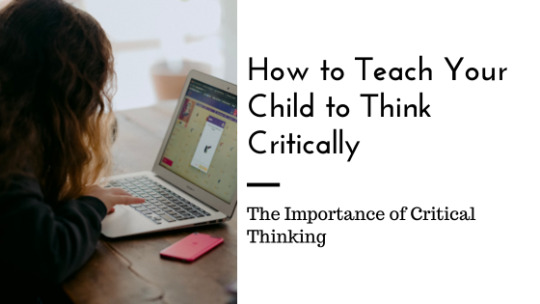#Parenting support
Text
my step mom was asking me more questions about the nonbinary thing and after talking to me for a bit, she said "oh, so youre a rosé! not a chardonnay transitioning to a merlot, just your own unique type" which was such a middle aged white woman way to frame it, but i cannot lie gang. it did make me want to cry
143K notes
·
View notes
Text
i love cishets and their somewhat ugly pride merch that lets us know they're at least fairly safe to be around i'm serious. like genuinely being like 13 and seeing random adults at the store in black "love is love" shirts where every letter is a different pride flag and the whole thing clashes horribly was the most comforting thing.
#text#this is part of why i cant stand it when teenagers complain abt their parents getting them 'cringe' pride merch#like is it cringe MAYBE YEAH ! but at least they support you bro . at least they're trying . some of us dont get that
48K notes
·
View notes
Text
Does Overprotective Parenting Create Anxious Children?

Most of the time, parents just want what’s best for their kids. But sometimes that can be hard to actually identify. Sometimes when we think we’re doing the right thing, we’re actually being too protective. While it’s natural for parents to want the best for their children and ensure their safety, there is a fine line between being vigilant and overly protective. Today, let’s explore what overprotective parenting entails, the negative effects associated with it, and how it can potentially lead to anxiety and lasting consequences for the children involved.
Overprotective Parenting: A Closer Look
Overprotective parenting, often referred to as “helicopter parenting,” is a style characterized by excessive involvement in a child’s life. It manifests in actions such as micromanaging their activities, making decisions on their behalf, and shielding them from any potential harm. While the intentions behind overprotective parenting may be rooted in love and concern, the consequences can be far-reaching.
Signs of Overprotective Parenting
So what’s the difference between being a protective parent and an overprotective parent? Here are some of the hallmarks of overprotective parenting.
Micromanagement and Control
Overprotective parents tend to micromanage various aspects of their child’s life, including academics, social interactions, extracurricular activities, and even mundane tasks. They may closely monitor their child’s activities, schedule, and choices, often making decisions on their behalf without allowing them the opportunity to develop independence. Overprotective parents also exhibit a strong need for control over their child’s environment and experiences. They may go to great lengths to shield their child from potential risks or dangers, often to the extent of restricting their freedom and autonomy.
Fear-Based Parenting
Overprotective parenting is often driven by fear – fear of harm, failure, disappointment, or societal judgment. Parents may operate under the belief that by closely monitoring and controlling their child’s life, they can protect them from potential dangers and ensure their success and well-being.
High Expectations
Overprotective parents often have high expectations for their children and may place significant pressure on them to excel in various areas of life. They may believe that by pushing their children to achieve perfection, they are setting them up for success and happiness. While there’s nothing wrong with wanting the best for your child, excessive expectations actually set them up for failure and emotional trauma when they inevitably run into setbacks as a normal part of life.
Lack of Boundaries
Overprotective parents may struggle to establish healthy boundaries with their children, often blurring the lines between parent and child roles. This can result in enmeshment, where the parent’s identity becomes intertwined with the child’s, leading to difficulties in establishing autonomy and individuality.
The Negative Impacts of Overprotective Parenting
Overprotective parenting, although well-intentioned, can have profound negative effects on children’s development and well-being. Here are some of the key negative effects associated with overprotective parenting:
Lack of Autonomy
One of the most significant negative effects of overprotective parenting is the hindrance of a child’s development of independence. When parents micromanage their children’s lives and make decisions on their behalf, children are deprived of the opportunity to learn how to navigate the world on their own. This lack of autonomy can persist into adulthood, making it challenging for individuals to make decisions, solve problems, and take responsibility for their actions.
Reduced Resilience
Facing and overcoming challenges is an essential part of growing up and building resilience. However, overprotective parenting shields children from experiencing failure and adversity, which are crucial for developing resilience. Without the opportunity to learn from setbacks and develop coping mechanisms, children raised in overprotective environments may struggle to bounce back from challenges later in life.
Impaired Social Skills
Overprotective parenting can impede a child’s social development by limiting opportunities for interaction and exploration. When parents closely monitor and control their children’s social interactions, children may struggle to develop essential social skills such as communication, empathy, and cooperation. This can lead to difficulties forming and maintaining relationships, resolving conflicts, and navigating social situations independently.
Dependency
Overprotective parenting can foster a sense of dependency in children, as they become accustomed to relying on their parents for decision-making and problem-solving. Children raised in overprotective environments may struggle to develop a sense of autonomy and self-reliance, leading to dependency on their parents well into adulthood. This dependency can hinder their ability to function independently and make confident decisions in various areas of life.
Anxiety and Overprotective Parenting
The constant scrutiny and pressure associated with overprotective parenting can contribute to anxiety and stress in children. Fear of making mistakes, disappointing their parents, or not meeting expectations can take a toll on children’s mental and emotional well-being. This chronic stress can manifest as anxiety disorders, perfectionism, and low self-esteem, affecting various aspects of children’s lives, including academic performance, social interactions, and overall happiness.
When parents excessively shield their children from potential risks and stressors, they inadvertently communicate a message of fear and vulnerability, leading children to perceive the world as a threatening place. This constant state of vigilance and apprehension can heighten children’s anxiety levels and impair their ability to cope with stressors effectively.
Moreover, remember that sense of dependency we talked about? This dependency can exacerbate anxiety, as children may feel ill-equipped to handle challenges on their own. Additionally, the pressure to meet high parental expectations and the fear of disappointing their parents can contribute to performance anxiety and perfectionistic tendencies in children raised in overprotective environments.
In short, overprotective parenting is bad for kids! It doesn’t give them the room they need to grow and develop as a person. While helicopter parents want the best for their kids, going overboard does not help them the way these parents think it will.
So if you’re noticing these patterns in your own parenting style, what can you do?
Breaking Free from Overprotective Parenting Patterns
Recognizing the negative impact of overprotective parenting is the first step towards fostering healthier parent-child relationships. It’s essential for parents to strike a balance between ensuring their children’s safety and allowing them the space to learn, grow, and develop resilience.
Encouraging autonomy, fostering a growth mindset, and allowing room for mistakes are crucial in mitigating the negative effects of overprotective parenting. While the intention behind overprotective parenting is often rooted in love and concern, the unintended consequences can be profound. By understanding the negative effects and potential link to anxiety, parents can make conscious efforts to promote independence, resilience, and healthy social development in their children.
One thing that parents who want to break free from helicopter parenting patterns can do is to seek out the support and guidance of a mental health professional. This kind of help can provide valuable insights, strategies, and support tailored to the unique needs of your family. Remember, it’s okay to ask for help, and taking this step can lead to positive changes that benefit your entire family in the long run. If this sounds familiar, don’t hesitate to reach out to the therapy team here at Love Heal Grow. We’re here for you– and your kids!
0 notes
Text
#manifesting#manifest family wealth#positive parenting#happyfamily#affirmations for kids#family holiday#familygoals#kids#parenting support#lawofattraction#lawofvibration#successfulkids#successfulfamily#positive energy#money#wealth#abundance#family holidays#making memories#making money#money mindset#mom life#mummyblog
0 notes
Text
The arrival of a newborn brings unparalleled joy, but it also introduces a world of new challenges, particularly for sleep-deprived parents. Enter overnight care for infants, a service designed not only to provide much-needed rest for parents but also to nurture the well-being of the newest member of the family.
0 notes
Text
In life, we garner numerous roles as we grow older—a family member, a friend, a partner, and a parent. Parenting is a beautiful role where you bring a new life into this world and raise and provide for them to ensure that they are well-cared for and, most of all, to grow up where they reach their dreams and achieve their potential.
0 notes
Text
As children grow and develop, they experience various emotions, including anger. Anger is a normal and healthy emotion, but when it becomes a consistent and overwhelming part of a child’s life, it may indicate that intervention is needed to address underlying issues. Recognizing the signs that your child’s anger may require intervention is crucial for their mental wellness and overall well-being.
1 note
·
View note
Text
Looking for the best daycare for your little one in the heart of the Big Apple? You aim to find a place that’s more than just a playground. It should be a sanctuary where your child grows with love, learning, and joy.
0 notes
Text
Today my therapist introduced me to a concept surrounding disability that she called "hLep".
Which is when you - in this case, you are a disabled person - ask someone for help ("I can't drink almond milk so can you get me some whole milk?", or "Please call Donna and ask her to pick up the car for me."), and they say yes, and then they do something that is not what you asked for but is what they think you should have asked for ("I know you said you wanted whole, but I got you skim milk because it's better for you!", "I didn't want to ruin Donna's day by asking her that, so I spent your money on an expensive towing service!") And then if you get annoyed at them for ignoring what you actually asked for - and often it has already happened repeatedly - they get angry because they "were just helping you! You should be grateful!!"
And my therapist pointed out that this is not "help", it's "hLep".
Sure, it looks like help; it kind of sounds like help too; and if it was adjusted just a little bit, it could be help. But it's not help. It's hLep.
At its best, it is patronizing and makes a person feel unvalued and un-listened-to. Always, it reinforces the false idea that disabled people can't be trusted with our own care. And at its worst, it results in disabled people losing our freedom and control over our lives, and also being unable to actually access what we need to survive.
So please, when a disabled person asks you for help on something, don't be a hLeper, be a helper! In other words: they know better than you what they need, and the best way you can honor the trust they've put in you is to believe that!
Also, I want to be very clear that the "getting angry at a disabled person's attempts to point out harmful behavior" part of this makes the whole thing WAY worse. Like it'd be one thing if my roommate bought me some passive-aggressive skim milk, but then they heard what I had to say, and they apologized and did better in the future - our relationship could bounce back from that. But it is very much another thing to have a crying shouting match with someone who is furious at you for saying something they did was ableist. Like, Christ, Jessica, remind me to never ask for your support ever again! You make me feel like if I asked you to call 911, you'd order a pizza because you know I'll feel better once I eat something!!
Edit: crediting my therapist by name with her permission - this term was coined by Nahime Aguirre Mtanous!
Edit again: I made an optional follow-up to this post after seeing the responses. Might help somebody. CW for me frankly talking about how dangerous hLep really is.
#hlep#original#mental health#my sympathies and empathies to anyone who has to rely on this kind of hlep to get what they need.#the people in my life who most need to see this post are my family but even if they did I sincerely doubt they would internalize it#i've tried to break thru to them so many times it makes my head hurt. so i am focusing on boundaries and on finding other forms of support#and this thing i learned today helps me validate those boundaries. the example with the milk was from my therapist.#the example with the towing company was a real thing that happened with my parents a few months ago while I was age 28. 28!#a full adult age! it is so infantilizing as a disabled adult to seek assistance and support from ableist parents.#they were real mad i was mad tho. and the spoons i spent trying to explain it were only the latest in a long line of#huge family-related spoon expenditures. distance and the ability to enforce boundaries helps. haven't talked to sisters for literally the#longest period of my whole life. people really believe that if they love you and try to help you they can do no wrong.#and those people are NOT great allies to the chronically sick folks in their lives.#you can adore someone and still fuck up and hurt them so bad. will your pride refuse to accept what you've done and lash out instead?#or will you have courage and be kind? will you learn and grow? all of us have prejudices and practices we are not yet aware of.#no one is pure. but will you be kind? will you be a good friend? will you grow? i hope i grow. i hope i always make the choice to grow.#i hope with every year i age i get better and better at making people feel the opposite of how my family's ableism has made me feel#i will see them seen and hear them heard and smile at their smiles. make them feel smart and held and strong.#just like i do now but even better! i am always learning better ways to be kind so i don't see why i would stop
17K notes
·
View notes
Text
In every household, whether married or unmarried, challenges are bound to arise. These challenges can stem from a variety of factors, including communication issues, conflicting personalities, parenting disagreements, family violence, financial stress, divorce, step-families, and more. If these are not addressed, these difficulties can strain family relationships and each family member’s overall well-being.
0 notes
Text
Damian: Baba, I've brought a new member into the family. His name is Raul The Rat. Would you like to hold him?
Bruce, who's scared out of his skin of rats: yes
Damian: Excellent. Mama?
Talia, who's even MORE scared: yes my precious child of course
#btw sorry to be a hater i do not like talia's design in harley quinn lmao#bruce wayne#damian wayne#talia al ghul#text#batman#batdad#incorrect quotes#damian obtains an affliction for rodents and insects and his parents try to be supportive
6K notes
·
View notes
Text
no actually you’re either gentle parenting your child or you’re being emotionally and/or physically abusive to them, whether or not you’re aware of that.
because the term gentle parenting already includes discipline and teaching your kid right from wrong. gentle parenting doesn’t mean you can’t tell your kid no. it means you can tell them no when they do something they shouldn’t, but instead of punishing or yelling at them, you’re explaining and giving them reasons why they can’t do that, you are helping them learn and encouraging them to be better. gentle parenting means you’re using reasons built on mutual respect instead of anger. because yes, no matter how young your child is, they deserve respect too.
I’m sorry but most of the times when someone says they’re a strict parent, what it means is that they give their child childhood trauma that’ll last a lifetime, whether or not they’re aware of it. especially parents who brag to other people about how strict they are and how they punished their children.
and I’m sorry but saying you have a short temper is never an excuse to be emotionally and/or physically abusive towards your kid either.
“I yelled at you because I have a short temper” then why am I the one suffering? if you can’t control your anger, then get help. work on it. do better. be better.
also… your child standing up for themself against you, when you’re being abusive to them, isn’t them being disrespectful towards you. it means they are defending themself because you wouldn’t do that for them and so they had to step in and be their own protector.
if you’re a parent and can defend and stand up for yourself when you feel like you need to, but at the same time punish your kid when they stand up for themself against you, then you are the problem.
I was that child and I’m gonna make it as simple as I can for any parent out there — because no kid deserves to go through what I went through — imagine yourself owning a dog. really. you can either
a.) beat that dog whenever they do something wrong and simply take your anger out on them until they’re fully submissive and are terrified of you
or
b.) train them with love and gentleness and earn their love and loyalty in return
now imagine both A and B dogs on leashes and imagine them no longer being on leashes one day. which dog do you think will run away as far as they can and never look back, and which one do you think will stay because they love and want to be with their owner?
#parenting#parenting guide#how to parent#mental health#parenting advice#mental health support#gentle parenting#mental health awareness#life coaching#life lessons#mental health advocate#motherhood#fatherhood#childhealth#parent#parents#signal boost#childhood#how to be a parent#life choices#important
1K notes
·
View notes
Text
Annabeth, and others, often treat Percy as if he’s ridiculous or obtuse for his reactions to the demigod world, when in reality he’s a (relatively) well adjusted kid who was raised by a loving parent. His actions make sense based on his upbringing
- parents arent supposed to be neglectful
- parents are supposed to be easily attainable, loving, and present in a child’s life
- if you’re in trouble, you should call for help, there isn’t shame in admitting you’re in over your head, you’re twelve
- you shouldn’t have to jump through life endangering hoops to get your parent’s attention
Annabeth acts like he’s ridiculous, but he’s right. Annabeth knows how the Greek world works, but Percy knows how the real world is supposed to work. & rightfully calls out the BS. But it’s hard for most demigods to agree because what kid wants to admit the way their parents treat them is awful? That their actions are those of aloof, negligent, even narcisstic people who are unwilling or incapable of giving the proper love and support a child needs. That even if their godly parent does love them, it’s a pathetic, horrible, attempt at love you’re better off without.
#Percy said: hey parents are supposed to love and support us#and everyone goes pffft unconditionally? without doing something to earn it?#anyways I hate all the Greek god parents and would slam dunk them into a wood chipper while a mariachi band plays if I could#they’re all the worst but if I had to rank Athena#posideon and Zeus are tied for first#percy jackon and the olympians#percy jackson#percy jackson and the olympians#pjo#pjo series#pjo tv show#annabeth chase#mine#rick riordan
2K notes
·
View notes
Text
How to Teach Your Child to Think Critically

Critical thinking is one of the most important skills that a child can learn. And most parents agree; about 95 percent of people think that education, kindergarten through college, should require courses in critical thinking. Critical thinking, or the ability to look at the world logically and reasonably at the highest level of quality, is crucial to understanding the world around us– especially now, in the internet age where kids (and adults!) are constantly exposed to misinformation.
But sadly, critical thinking is a skill that many kids (and adults!) have a hard time with. It’s simply missing from a great deal of education, especially primary education. According to Frank Breslin, retired high school instructor and academic theorist, critical thinking has been pushed out of schools by curriculum overload:
“While teachers do encourage critical thinking, there has never been a way of formally integrating this skill into existing curricula. Apart from a few teachers who do train their students in critical thinking, most teachers do not for one simple reason– there is no time. State education departments mandate that so much material has to be covered that critical thinking cannot be taught, nor can the courses themselves be critically presented.”
So if your kids’ teachers aren’t allowed to teach them how to think critically, what can you do as a parent to support this important skill? How can you teach your child how to think critically?
Why Is Critical Thinking Important?
Critical thinking is a fundamental skill that empowers kids to analyze information, make reasoned decisions, and solve problems effectively. It goes beyond memorization and encourages children to question the world around them to better understand it. At its core, critical thinking for kids involves developing the ability to think independently, logically, and creatively.
Curiosity and Analysis
For kids, the most important thing about critical thinking is that it encourages them to ask questions. Children are naturally curious, and fostering this curiosity is key to developing critical thinking skills. Instead of passively accepting information, kids learn to inquire about the why, how, and what-if aspects of a situation. By asking questions, they begin to explore different perspectives. This lets them gain a deeper understanding of concepts and develop a habit of seeking knowledge.
Critical thinking also teaches kids to analyze the information they take in, instead of just accepting it at face value. In today’s information-rich world, children are exposed to a plethora of data from various sources, many of which are completely unregulated. Critical thinking skills help them sift through this information, distinguishing between reliable and unreliable sources. Kids learn to assess the credibility of information. They can learn how to identify biases and make informed decisions based on evidence rather than mere intuition.
Empathy and Open-Mindedness
Critical thinking also encourages kids to consider different viewpoints. It fosters empathy and open-mindedness, helping children understand that there can be multiple valid perspectives on any given issue. This skill is essential in a diverse and interconnected world, promoting tolerance and cooperation. Kids learn to appreciate the richness of diversity and engage in constructive dialogue with their peers.
Problem-Solving and Creativity
Another crucial aspect of critical thinking for kids is problem-solving. Critical thinkers are adept at breaking down complex problems into manageable parts, identifying possible solutions, and evaluating their effectiveness. This skill empowers children to tackle challenges with confidence, promoting resilience and adaptability.
Critical thinking also nurtures creativity. It encourages kids to think outside the box, explore innovative ideas, and connect seemingly unrelated concepts. This creative aspect of critical thinking enhances a child’s imagination and prepares them for a future where innovation is highly valued.
Critical thinking is a lifelong skill that equips kids with the tools they need to thrive in a complex and ever-changing world. It is not about finding the right answer but about developing a mindset that values inquiry, analysis, and creativity. Critical thinking empowers kids to become independent, thoughtful individuals who can navigate the challenges of the future with confidence and resilience.
How To Teach Your Child Critical Thinking Skills
Teaching critical thinking to kids lays the foundation for a lifetime of informed decision-making and problem-solving. Here are key strategies to foster this essential skill in young minds, setting them up for a lifetime of curiosity and inquiry.
Encourage Questioning
You can cultivate a curiosity-driven environment by encouraging kids to ask questions. Foster a culture where queries are welcomed, and curiosity is celebrated. By doing so, your child will develop the habit of seeking information, understanding the reasons behind things, and exploring the world around them.
Model Critical Thinking
Children often learn by example. Demonstrate critical thinking in your own decision-making and problem-solving processes. Discuss your reasoning aloud, ask questions, and show how evidence supports conclusions. When kids witness critical thinking in action, they are more likely to emulate these cognitive processes.
Provide Diverse Perspectives
It’s important to expose kids to a variety of viewpoints and opinions. Discuss different cultural, historical, and social perspectives on various topics. This helps children understand that there isn’t always a single right answer and that considering multiple viewpoints enriches their understanding of a subject.
Encourage Analysis of Media
In today’s digital age, kids are bombarded with information from various media sources. Even if you limit screen time, just existing in the world exposes kids to all kinds of media. Teach them to be discerning consumers by discussing different types of media, their biases, and potential motivations. Help them evaluate the credibility of sources and distinguish between fact and opinion.
Play Decision-Making Games
Board games, puzzles, and strategic video games provide excellent opportunities for kids to practice critical thinking skills. These games often require planning, problem-solving, and adapting to changing situations, helping children develop a structured approach to decision-making. Plus, these games are fun! If they’re having a good time, your kids won’t even realize they’re learning.
Teach Problem-Solving Strategies
Equip kids with problem-solving frameworks. Teach them to break down complex issues into smaller parts, identify possible solutions, and evaluate the pros and cons of each. Providing structured problem-solving exercises develops their analytical abilities and resilience in the face of challenges.
Encourage Creative Thinking
Foster an environment that values creativity alongside critical thinking. Engage kids in activities that stimulate their imagination, such as storytelling, drawing, or role-playing. Creative thinking enhances their ability to approach problems from unique angles, promoting a well-rounded thinking process.
Support a Growth Mindset
Foster a growth mindset by emphasizing the idea that their thinking abilities can be developed through effort and perseverance. Teach kids that making mistakes is a natural part of learning and an opportunity for growth. Let them learn and grow instead of punishing them when mistakes happen. And let them know that adults can make mistakes and learn from them, too!
Teaching critical thinking to kids is an important part of their development. It isn’t just an academic skill; understanding how to think critically will improve their ability to regulate their emotions, develop their empathy, and help them understand where they fit in the world. If you want assistance teaching your child critical thinking, don’t hesitate to reach out to the therapists at Love Heal Grow. Our family therapy experts are great at teaching parents how to introduce critical thinking into your kids’ experience!
0 notes
Text
#positive parenting#badly behaved#children#teenager#toddler#kids#positive energy#positive thoughts#parenting course#parenting101#parenting class#parenting support#kindness#parent help
0 notes



